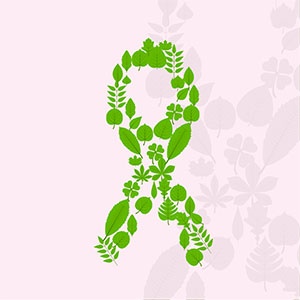

Worldwide, more people are turning to traditional, complementary and alternative medicine (T-CAM).
This is true of cancer patients also. As a result, some oncologists are open to the idea of an integrative approach, where practitioners from across the medicine spectrum work together to give patients the best possible treatment. It helps that research into the safety of complementary and alternative medicines, though still limited, is showing some promising results.
Chinese medicine
The most encouraging developments relate to work done in China, says Dr Daniel Weber, a practitioner of T-CAM. Several clinical trials are currently investigating which components in different herbs are the most active.
Dr Weber says Chinese medicine’s way of approaching disease differs considerably from the “reductionist” approach of Western medicine. He makes the point that Western allopathic medicine has not yet solved the cancer riddle.
“Cancer is perhaps the most complicated of all diseases. In the early 70s and 80s, we were on the threshold of a cancer breakthrough. At that stage, we believed there were single-point mutations of oncogenes – in other words, we believed there was one cause, and one treatment. As we delved into the cellular functions, we uncovered several layers. It was only in the 90s that we understood the complexity of the disease. We now know there isn’t one cause or a single cure.”
Western medicine typically works by treating very specific symptoms, where traditional Chinese medicine (TCM) has a more divergent approach, targeting more than one aspect of the disease. It’s here that Weber believes TCM might be on the right track.

A new paradigm
Approximately five thousand different herb combinations are currently being investigated, of which most have between three and 120 therapeutic compounds. “These are never prescribed as single herbs; some of the formulations contain 16 different herbs. They’re difficult to codify, but they work clinically,” says Dr Weber. Examples include indirubin from indigo extract, which induces apoptosis, or death of cancer cells. Another is baicalin from scutellariae extract , which stops cancer from spreading (metastasis).
The experts believe a new paradigm in medicine, where practitioners from different modalities work together, is key to finding a solution to cancer and treating the side-effects associated with radio- and chemotherapy. That is what happens in Chinese hospitals, which incorporate both Western and traditional medicine into clinical practice.
Industry poorly regulated
None of this, however, suggests patients take matters into their own hands.
Dr Weber notes that an estimated 90 percent of cancer patients use T-CAM – and most don’t tell their oncologists. Certain herbs and supplements have side-effects; some interact with allopathic medicines. “Herbs will kill you as fast as anything else,” he says. However, if taken properly, and under supervision, “generally, botanical medicines have fewer adverse effects, can be taken for longer, and can complement Western approaches.”
It’s here that the guidance of an experienced alternative practitioner becomes invaluable. Unfortunately, mostly because of undereducation or unethical practitioners, the T-CAM industry has a sometimes dodgy reputation.
Oncologists not so sure
Cape Town radiation oncologist Dr David Eedes agrees that, due to poor regulation, there’s a great number of substances, products and techniques that make claims that aren’t backed up by solid scientific data.
He further makes the point that complementary medicine hasn’t shown any great impact in treating cancer once it’s taken hold. “Without the traditional cornerstones of oncological treatment – surgery, chemotherapy and radiotherapy – there’s little that will impact on this often vicious disease.”
Most oncologists believe that complementary disciplines may help in a supportive role, helping patients cope with the side-effects of these treatments.
Preventing cancer
It’s interesting to note that only about 20 percent of solid tumours in adults are genetic. This means we have a degree of control in how genes are expressed. “When it comes to cancer, you really have a choice,” says Dr Weber.
Give yourself the best chance of avoiding cancer:
- Eat organic and fresh, and cook your own foods.
- Follow a diet that’s low in animal fats.
- Eat lots of vegetables and fruit daily.
- Increase your intake of the Omega-3 fatty acids and lower your intake of Omega-6.
- Increase your intake of antioxidants.
- Increase your intake of Vitamin D.
- Consider taking a vitamin/mineral supplement.
- Control your weight.
- Don’t smoke.
- Don’t drink excessively.
- Exercise regularly (about five hours a week).





 Publications
Publications
 Partners
Partners










